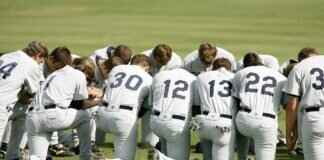This article delves into the rich and diverse art and craft culture of West Bengal, a region known for its vibrant traditions and skilled artisans. The essence of West Bengal’s art is deeply intertwined with its history, showcasing the evolution of its culture through various crafts that have been passed down through generations.
The Historical Significance of West Bengal’s Art
The art of West Bengal is a reflection of its historical journey, influenced by different ruling dynasties and cultural movements. This historical backdrop has shaped the artistic expressions found in the region, making it a treasure trove of cultural heritage.
Traditional Crafts of West Bengal
- Terracotta Sculptures: These intricate creations represent the craftsmanship of local artisans and are often used in temples and homes.
- Weaving: The weaving traditions of West Bengal, especially the famous Baluchari sarees, highlight the skill and creativity of the weavers.
- Kantha Stitching: This embroidery technique transforms old textiles into beautiful quilts, symbolizing sustainability and artistic expression.
The Influence of Folk Art in West Bengal
Folk art plays a vital role in the cultural fabric of West Bengal. Forms such as Patachitra and Madhubani painting are not just art forms but also serve as a medium for storytelling, reflecting the rich heritage of the region.
The Role of Festivals in Promoting Art
Festivals like Durga Puja are significant in showcasing local art and crafts. They create a sense of community and provide artisans with a platform to display their creations, ensuring that traditional crafts are celebrated and preserved.
Challenges Faced by Artisans
Despite the cultural richness, artisans in West Bengal face numerous challenges, including economic instability and competition from mass-produced goods. These factors threaten the survival of traditional crafts, making it essential to support local artisans.
Supporting Local Artisans: How You Can Help
By purchasing handmade crafts and participating in local workshops, individuals can contribute significantly to preserving West Bengal’s unique art and craft culture. Awareness and appreciation of these traditions are crucial for their sustainability.
The Future of Art and Craft in West Bengal
The future of West Bengal’s art and craft culture hinges on innovation and community support. Continued efforts from both the government and individuals can nurture these traditions, ensuring that they thrive for generations to come.

The Historical Significance of West Bengal’s Art
West Bengal’s art serves as a visual chronicle of the region’s rich history, showcasing the cultural evolution and societal transformations that have occurred over centuries. This artistic journey is deeply intertwined with the various ruling dynasties and significant movements that have shaped the region.
From ancient times, West Bengal has been a melting pot of diverse influences, with each era leaving its unique mark on the artistic landscape. The Mughal era, for instance, introduced intricate designs and motifs that can still be seen in contemporary artworks. Similarly, the British colonial period catalyzed changes in artistic expression, leading to a blend of traditional and Western styles.
The historical significance of West Bengal’s art is not just limited to aesthetics; it also serves as a medium for social commentary and reflection. Art forms such as folk paintings and sculptures often depict the lives, struggles, and aspirations of the local populace, making them an invaluable resource for understanding the region’s past.
Moreover, various art forms, including traditional crafts like Kantha embroidery and Terracotta sculptures, are steeped in history, each telling a unique story of the artisans and their communities. These crafts not only preserve the rich heritage but also highlight the skills passed down through generations.
In conclusion, the historical significance of West Bengal’s art is profound, reflecting a continuous dialogue between the past and the present. As we explore these artistic expressions, we gain valuable insights into the region’s identity and the factors that have shaped it over time.

Traditional Crafts of West Bengal
are a vibrant testament to the region’s rich cultural heritage and the exceptional skills of its artisans. From the intricate designs of Kantha embroidery to the stunning terracotta sculptures, each craft tells a unique story, reflecting the history and traditions of the local communities.
West Bengal is renowned for its diverse range of traditional crafts, which not only showcase the creativity of the artisans but also their deep-rooted connection to the land and its history. These crafts are often passed down through generations, preserving the techniques and stories of the past.
- Terracotta Sculptures: These sculptures highlight the artistic prowess of local artisans, often depicting deities, animals, and everyday life. The use of natural clay makes each piece unique and environmentally friendly.
- Kantha Stitching: A traditional form of embroidery, Kantha transforms old fabrics into beautiful quilts. It symbolizes sustainability and serves as a canvas for artistic expression among rural women, showcasing their skills and creativity.
- Patachitra: This traditional scroll painting form narrates mythological tales and local folklore, characterized by intricate designs and vibrant colors. Each painting is a story in itself, deeply embedded in the cultural fabric of the region.
- Madhubani Painting: Known for its elaborate patterns and bright hues, this folk art captures the essence of nature and spirituality, often depicting themes from Hindu mythology.
The artisans of West Bengal face challenges, including economic pressures and competition from mass-produced items. However, their resilience and dedication to their crafts ensure that these traditional practices continue to thrive. Supporting local artists through purchases and awareness can significantly contribute to the preservation of this rich cultural heritage.
In conclusion, the traditional crafts of West Bengal are not merely artistic expressions; they are vital links to the region’s history and culture. By appreciating and supporting these crafts, we can help keep the stories and skills of these artisans alive for future generations.
The Craft of Kantha Stitching
is a vibrant and traditional form of embroidery that has its roots in the rural landscapes of West Bengal. This unique craft not only transforms old saris into exquisite quilts but also embodies the principles of sustainability and artistic expression, primarily driven by the skilled hands of rural women.
Kantha stitching is more than just a craft; it is a storytelling medium. Each quilt, or kantha, is adorned with intricate patterns and motifs that reflect the daily lives, dreams, and cultural heritage of the artisans. This technique employs a simple running stitch, yet the creativity involved in the design makes each piece a distinctive work of art. The process of repurposing old textiles not only promotes environmental sustainability but also preserves the memories embedded in the fabric.
| Key Features of Kantha | Description |
|---|---|
| Materials Used | Primarily old saris, cotton fabric, and threads. |
| Stitching Techniques | Running stitch, embroidery, and layering. |
| Cultural Significance | Represents women’s empowerment and sustainability. |
In recent years, the craft of Kantha has evolved, finding its way into contemporary fashion and home décor. Designers have embraced this traditional art form, creating a fusion of modern aesthetics and age-old techniques. This not only helps in keeping the craft alive but also opens new avenues for artisans to showcase their skills on larger platforms.
As we celebrate the art of Kantha stitching, it is essential to recognize the challenges faced by artisans. Economic instability, competition from mass-produced items, and the need for fair trade practices are critical issues that threaten the survival of this beautiful craft. By supporting local artisans through purchases and awareness, we can contribute to the preservation of West Bengal’s rich cultural heritage.
In conclusion, Kantha stitching is a remarkable testament to the creativity and resilience of rural women in West Bengal. It is a craft that not only beautifies our lives but also carries with it the stories and traditions of generations past.
Techniques and Patterns in Kantha
Kantha, an exquisite form of embroidery originating from West Bengal, is renowned for its intricate stitching techniques and unique patterns, each of which carries a rich narrative or cultural significance. This traditional craft not only transforms discarded fabrics into stunning quilts but also serves as a canvas for storytelling through art.
- Running Stitch: The most fundamental technique in Kantha, the running stitch is used to create delicate patterns and motifs. This stitch is often layered to add depth and texture to the fabric.
- Back Stitch: This technique is employed to outline shapes and designs, providing a bold contrast against the softer running stitches.
- Chain Stitch: Used to create loops and curves, the chain stitch adds a decorative flair to the overall design, enhancing the visual appeal of the piece.
- Cross Stitch: This technique is often used to fill in spaces with vibrant colors, creating intricate designs that stand out.
The patterns in Kantha are equally diverse, often inspired by nature, folklore, and daily life. Common motifs include:
- Floral Designs: These represent beauty and growth, often symbolizing the connection between nature and humanity.
- Geometric Shapes: Reflecting the harmony of the universe, these patterns are not only aesthetically pleasing but also hold cultural significance.
- Animal Figures: Animals in Kantha designs often symbolize various traits, such as strength, grace, and resilience.
Each Kantha piece is a unique work of art, often reflecting the personal stories and experiences of the artisans who create them. Through their stitches, these artisans preserve their cultural heritage while also adapting to contemporary styles.
In conclusion, the techniques and patterns of Kantha are not merely decorative; they are a profound expression of identity, creativity, and tradition, making every quilt a narrative woven with love and skill.
Modern Adaptations of Kantha
have transformed this traditional craft into a vibrant expression of contemporary artistry, making it relevant in today’s fashion and home décor landscapes. This evolution not only preserves the intricate stitching techniques but also showcases the versatility of Kantha, allowing it to bridge the gap between heritage and modernity.
Originally, Kantha was a way for rural women in West Bengal to repurpose old saris into functional quilts. However, in recent years, the craft has gained significant attention from designers and consumers alike, leading to its incorporation into various modern applications. Today, Kantha is seen on everything from fashion apparel to home textiles, such as cushions, throws, and wall hangings.
The contemporary adaptations of Kantha have not only revitalized interest in this ancient craft but have also provided artisans with new economic opportunities. By collaborating with designers and participating in craft fairs, artisans can showcase their work to a broader audience, ensuring that the art form remains alive and thriving.
Moreover, the use of Kantha in fashion has led to a resurgence of interest in sustainable and ethical practices. With a growing consumer base that values eco-friendly products, Kantha’s appeal lies in its sustainability, as it encourages the reuse of materials and supports local artisans. This shift reflects a larger trend towards conscious consumerism, where buyers are increasingly looking for products that tell a story and have a positive impact on communities.
In conclusion, the modern adaptations of Kantha not only celebrate traditional craftsmanship but also highlight the importance of sustainability in contemporary design. As this craft continues to evolve, it serves as a reminder of the rich cultural heritage of West Bengal while paving the way for innovative expressions that resonate with today’s audiences.
The Art of Shantiniketan
Shantiniketan, a renowned cultural hub in West Bengal, was founded by the illustrious Nobel laureate Rabindranath Tagore. This unique institution is not only a center for education but also a vibrant confluence of art and nature. Tagore envisioned a space where creativity could flourish in harmony with the natural environment, leading to an innovative approach to learning that remains influential today.
The philosophy of Shantiniketan emphasizes the importance of integrating nature into the educational process. Students are encouraged to engage with their surroundings, drawing inspiration from the beauty of the landscape. This approach fosters a deep appreciation for the arts, as students participate in various creative activities, including painting, music, dance, and theater.
One of the most significant aspects of Shantiniketan is its artistic community. The institution attracts artists and scholars from diverse backgrounds, creating a melting pot of cultural exchange. The annual Poush Mela (Poush Fair) is a prime example of this, showcasing local artisans, folk artists, and performers. This festival not only celebrates traditional crafts but also promotes the preservation of cultural heritage.
Furthermore, the Tagore family played a pivotal role in fostering various art forms. Their dedication to literature, music, and visual arts has left an indelible mark on Shantiniketan, making it a beacon of creative expression. The Visva-Bharati University, established by Tagore, continues to uphold these values, encouraging students to explore their artistic potential.
In conclusion, Shantiniketan stands as a testament to the power of art and education intertwined with nature. It remains a source of inspiration for countless individuals, embodying the belief that creativity thrives in a nurturing environment. As we celebrate this unique cultural oasis, we are reminded of the profound impact that art can have on education and society.

The Influence of Folk Art in West Bengal
Folk art holds a significant position in the cultural tapestry of West Bengal, acting as a vibrant reflection of the region’s rich heritage and storytelling traditions. The art forms, such as Patachitra and Madhubani painting, not only showcase the artistic prowess of local artisans but also serve as a medium for preserving and communicating cultural narratives.
Historically, folk art in West Bengal has been influenced by the region’s diverse communities and their unique customs. These art forms are often characterized by their bold colors, intricate designs, and the incorporation of local myths and legends. As a result, they offer a glimpse into the beliefs and values of the people.
Patachitra is a traditional scroll painting style that originated in the state, primarily known for its detailed narratives on mythological themes. The artisans use natural dyes and pigments, creating vibrant visuals that tell stories of gods, goddesses, and folklore. Each piece is not just a work of art but a narrative that connects the viewer to the cultural roots of the region.
Madhubani painting, another celebrated folk art, is renowned for its intricate patterns and vivid colors. Traditionally practiced by women, this art form often portrays themes related to nature, love, and spirituality. The use of organic materials in the painting process emphasizes sustainability and reflects the deep connection of the artists with their environment.
Festivals such as Durga Puja serve as vital platforms for showcasing these folk art forms. They not only promote community engagement but also provide artisans with opportunities to display their work, ensuring that these traditional practices continue to thrive amidst modern influences.
In conclusion, the influence of folk art in West Bengal is profound, serving as a bridge between the past and present. By supporting these art forms, we not only preserve a vital aspect of cultural identity but also empower the artisans who dedicate their lives to keeping these traditions alive.
Patachitra: A Glimpse into Mythology
Patachitra is a captivating traditional scroll painting style that originates from the state of West Bengal, India. This ancient art form serves as a powerful medium for storytelling, often depicting mythological narratives and folk tales that resonate with cultural significance. The artisans who create these intricate paintings are not only skilled artists but also storytellers who breathe life into the tales of gods, goddesses, and legendary heroes.
The process of creating Patachitra involves meticulous attention to detail and a deep understanding of the stories being told. Artisans typically use natural pigments derived from minerals and plants, which give the paintings their vibrant colors and longevity. The base for these artworks is usually made from cloth or dried palm leaves, providing a perfect canvas for the elaborate designs.
Patachitra paintings are characterized by their intricate patterns and vivid imagery. Each scroll unfolds a narrative, often accompanied by verses that enhance the storytelling experience. These paintings are not merely decorative; they serve as a medium for preserving and sharing the rich cultural heritage of the region. The themes often explore spirituality, nature, and the human experience, making them relatable to audiences across generations.
In recent years, Patachitra has gained recognition beyond local borders, finding its way into galleries and exhibitions worldwide. This newfound appreciation has provided artisans with greater visibility and opportunities, yet challenges remain. The struggle to maintain traditional methods in the face of modernity poses risks to the authenticity of this art form.
As we explore the world of Patachitra, we not only appreciate the artistic talent of these artisans but also acknowledge their role in preserving the narratives that shape our cultural identity. Supporting this craft means supporting a legacy that continues to inspire and educate.
Madhubani: Colorful Narratives on Canvas
Madhubani painting, a traditional art form originating from the Mithila region of Bihar, India, is renowned for its intricate designs and vibrant colors. This folk art captures the essence of life and nature, often depicting religious themes and mythological stories. The artists, primarily women, utilize natural pigments and materials, which adds to the authenticity and charm of each piece.
The origins of Madhubani painting can be traced back to ancient times, where it was traditionally created on the walls of homes during festivals and special occasions. The themes often revolve around Hindu deities, nature, and the daily lives of people, showcasing a harmonious blend of spirituality and realism.
One of the distinctive features of Madhubani art is its use of bold lines and intricate patterns. Artists employ various techniques, such as line drawing, filling colors, and creating motifs that symbolize fertility, love, and prosperity. These elements come together to tell a story, making each painting a narrative in itself.
In recent years, Madhubani painting has gained international recognition, with artists experimenting with different mediums, including canvas and paper. This evolution has led to a revival of interest in traditional crafts, allowing artisans to reach a broader audience and sustain their livelihoods.
Moreover, the cultural significance of Madhubani painting extends beyond aesthetics. It serves as a medium for social commentary, addressing issues such as women’s empowerment and environmental conservation. Through their art, these talented women are not only preserving their heritage but also advocating for change.
In conclusion, Madhubani painting is more than just an art form; it is a vibrant expression of culture, history, and community. By appreciating and supporting this unique craft, we contribute to the preservation of a rich artistic tradition that continues to inspire and resonate across generations.

The Role of Festivals in Promoting Art
Festivals in West Bengal are not merely celebrations; they are vibrant showcases of the region’s rich art and craft culture. One of the most significant festivals, Durga Puja, stands out as a prime example of how art and community intertwine. During this festive season, the streets come alive with intricately designed pandals (temporary structures), each displaying unique artistic expressions that reflect both traditional and contemporary themes.
The festival serves as a platform for local artisans to exhibit their craftsmanship, ranging from sculptures to handcrafted decorations. It is an opportunity for these talented individuals to gain visibility and appreciation for their hard work, often leading to increased sales and commissions. The intricate designs of the idols, made from clay and other materials, are a testament to the skill and creativity of local craftsmen.
Community spirit is at the heart of these festivals. As people come together to celebrate, they also engage in the process of creating art. Workshops and collaborative projects are organized, allowing individuals to participate in the artistic process. This not only fosters a sense of belonging but also ensures that traditional skills are passed down through generations.
Moreover, festivals like Durga Puja attract tourists from around the globe, providing artisans with a wider audience for their work. This influx of visitors stimulates the local economy and encourages the preservation of traditional crafts, which might otherwise face decline in the face of modernity.
In conclusion, festivals in West Bengal, particularly Durga Puja, play a crucial role in promoting local art and crafts. They not only celebrate cultural heritage but also empower artisans, foster community ties, and enhance the overall artistic landscape of the region.

Challenges Faced by Artisans
Challenges Faced by Artisans in West Bengal
West Bengal is renowned for its vibrant art and craft culture, which reflects the region’s rich heritage and artistic traditions. However, despite this cultural wealth, artisans face numerous challenges that threaten the survival of their traditional crafts. Understanding these challenges is crucial for fostering support and ensuring the preservation of these unique art forms.
- Economic Instability: Many artisans struggle with financial insecurity due to fluctuating market demands and the lack of consistent income. This instability can discourage younger generations from pursuing traditional crafts.
- Competition from Mass-Produced Goods: The rise of mass production has flooded the market with cheaper, machine-made alternatives, making it difficult for artisans to compete. These products often lack the uniqueness and cultural significance of handmade crafts.
- Lack of Access to Markets: Artisans often have limited access to wider markets, which restricts their ability to sell their products. This is exacerbated by inadequate infrastructure and marketing support.
- Declining Interest in Traditional Crafts: As urbanization increases, there is a growing trend towards modern lifestyles, leading to a decline in interest in traditional crafts among younger populations.
- Environmental Challenges: Changes in the environment and climate can affect the availability of raw materials essential for crafting, further complicating the artisans’ ability to produce their work.
Addressing these challenges is vital for the sustainability of West Bengal’s rich artistic heritage. Initiatives that promote awareness, provide financial support, and create opportunities for artisans to showcase their work can play a crucial role in revitalizing the traditional crafts of the region.
In conclusion, while artisans in West Bengal face significant hurdles, collective efforts from communities, government, and consumers can help preserve these invaluable cultural practices for future generations.

Supporting Local Artisans: How You Can Help
West Bengal’s art and craft culture is a vibrant tapestry woven with the skills and creativity of its artisans. By actively supporting local artisans, you can play a crucial role in preserving this unique heritage. Here are several ways you can contribute:
- Purchase Handmade Crafts: When you buy handmade items, you directly support the artisans and their families. This not only provides them with a sustainable income but also encourages the continuation of traditional crafts.
- Promote Awareness: Sharing information about West Bengal’s rich craft culture on social media or within your community can help raise awareness. By educating others, you create a demand for these unique products, further supporting the artisans.
- Participate in Workshops: Engaging in workshops allows you to learn about traditional crafts firsthand. This not only enhances your appreciation for the skills involved but also fosters a deeper connection with the artisans and their work.
- Support Local Markets: Visiting local craft fairs and markets is a great way to discover authentic handmade goods. These venues often provide artisans with a platform to showcase their work and connect with potential customers.
- Collaborate with Artisans: If you are an artist or designer, consider collaborating with local artisans. This fusion of modern and traditional techniques can lead to innovative products that appeal to a broader audience.
By taking these steps, you can help ensure that the rich art and craft culture of West Bengal continues to thrive. Your support not only benefits the artisans but also enriches your own life with unique, handcrafted treasures.
In conclusion, the preservation of West Bengal’s artistic heritage is a collective responsibility. By supporting local artisans, you contribute to a sustainable future for these time-honored crafts, ensuring that they remain a vital part of the region’s cultural identity.

The Future of Art and Craft in West Bengal
is a topic that encapsulates the essence of cultural heritage and the need for adaptation in a rapidly changing world. As the state of West Bengal is renowned for its vibrant art and craft traditions, the preservation and evolution of these practices are vital for future generations.
To ensure the longevity of West Bengal’s art and craft culture, a multifaceted approach is essential. Innovation plays a crucial role in this process. Artisans must embrace modern techniques and technologies that can enhance their traditional crafts without compromising their authenticity. For instance, incorporating eco-friendly materials and methods can attract a new audience that values sustainability.
Sustainability is another pillar supporting the future of these crafts. As global awareness of environmental issues grows, there is a rising demand for products that are not only beautiful but also ethically produced. Artisans who prioritize sustainable practices will find themselves more competitive in the market. This shift not only preserves the environment but also ensures that the cultural significance of these crafts is maintained.
The role of the community and government initiatives cannot be overstated. Continued support from local and state governments is essential in providing resources, training, and platforms for artisans to showcase their work. Community engagement through workshops and exhibitions can foster a deeper appreciation for these crafts among younger generations, ensuring that traditional skills are passed down.
Moreover, partnerships with educational institutions can help in promoting art and craft education, inspiring future artisans to innovate while staying rooted in tradition. Collaborative efforts between artisans, designers, and businesses can lead to unique products that appeal to a broader audience.
In conclusion, the future of West Bengal’s art and craft culture is promising if it embraces innovation, prioritizes sustainability, and garners strong support from both the community and government. By nurturing these traditions, West Bengal can continue to be a beacon of cultural richness and creativity.
Frequently Asked Questions
- What is the significance of Kantha stitching in West Bengal?
Kantha stitching is not just a craft; it’s a beautiful way of storytelling. This traditional embroidery transforms old saris into stunning quilts, symbolizing sustainability and the artistic spirit of rural women. Each stitch tells a tale, making it a unique piece of art.
- How do folk arts like Patachitra and Madhubani reflect local culture?
Folk arts like Patachitra and Madhubani are vibrant expressions of West Bengal’s rich heritage. Patachitra scrolls narrate mythological stories, while Madhubani paintings burst with colorful designs depicting life and nature. These art forms are living narratives that connect the past with the present.
- What role do festivals play in promoting West Bengal’s art and crafts?
Festivals like Durga Puja are vital for showcasing local art and crafts. They create a lively platform where artisans can display their work, fostering community spirit and appreciation for traditional crafts. It’s like a celebration of creativity that brings everyone together!
- How can I support local artisans in West Bengal?
Supporting local artisans is easier than you think! You can buy handmade crafts, spread the word about their work, and even join workshops to learn about these beautiful traditions. Every little effort helps keep the art alive and thriving!
- What challenges do artisans face in West Bengal today?
Artisans in West Bengal encounter various challenges, including economic instability and stiff competition from mass-produced goods. These factors threaten the survival of traditional crafts, making it crucial for us to support and promote their work.














